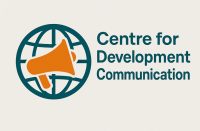Elections in Nigeria have gradually become open transactions, where voters trade their votes to the highest bidder. This happens because many citizens have lost faith in the sanctity of the ballot and in democracy’s ability to deliver good governance that translates into real development.
For them, elections are largely a business between politicians and the people — and the only opportunity to “collect” from politicians.
Politicians, on the other hand, have normalised vote buying as a winning strategy.
For years, our response has been campaigns: radio jingles, television adverts, billboards, and fliers. Yet, despite the millions invested, vote buying has escalated in every election cycle rather than reduced.
Why? Because awareness does not equal behavioural change.
If we must address vote buying, we need participatory communication — not top-down campaigns. Participatory communication facilitates active community dialogue and negotiation, creating space for citizens to co-create solutions.
It enables communities to understand the implications of vote buying on democracy and governance, while empowering them to resist it with homegrown measures.
The campaigns we have implemented over the years failed because they excluded the very people they targeted. They imposed external solutions on local problems that require indigenous approaches.
Participatory communication works differently. It connects with people through their own cultural and indigenous communication channels. And for communication to be effective, it must ensure three things:
1. The people understand the issues.
2. The people see themselves as part of the solution.
3. The people are moved to take action.
Our conventional campaigns have not met these conditions. Only participatory communication, designed with the people and implemented through indigenous approaches, can do so.
Until Nigeria replaces its campaign-driven approach with participatory communication, we will keep throwing money at the problem without results — and vote buying will continue to flourish.
Audu Liberty Oseni
Director, Centre for Development Communication
